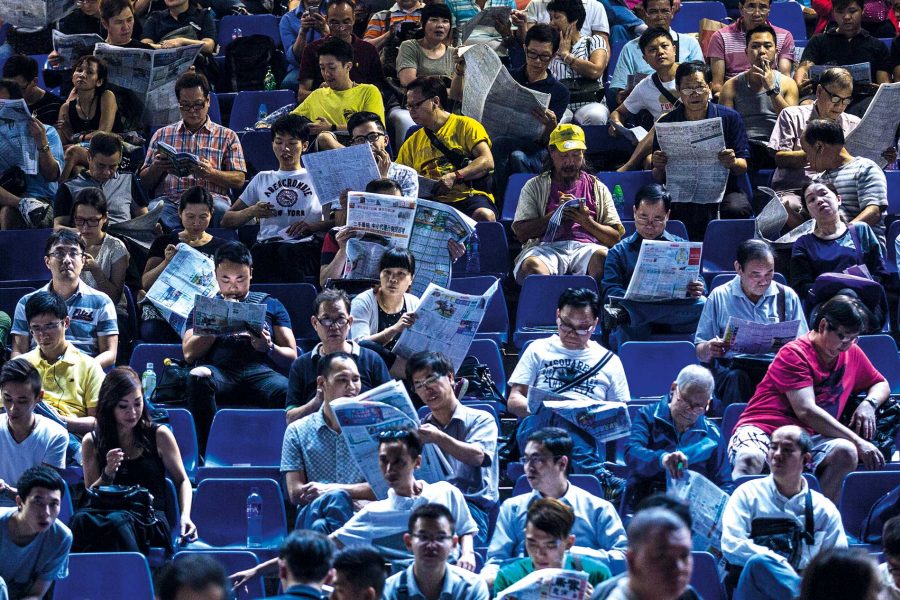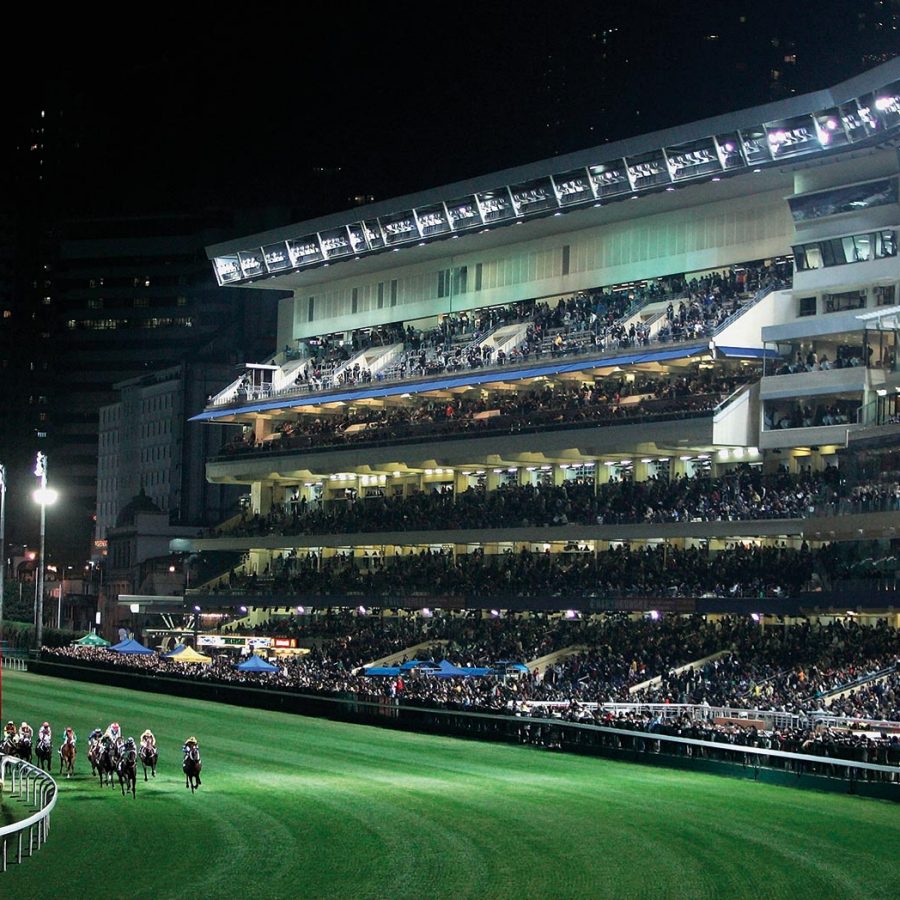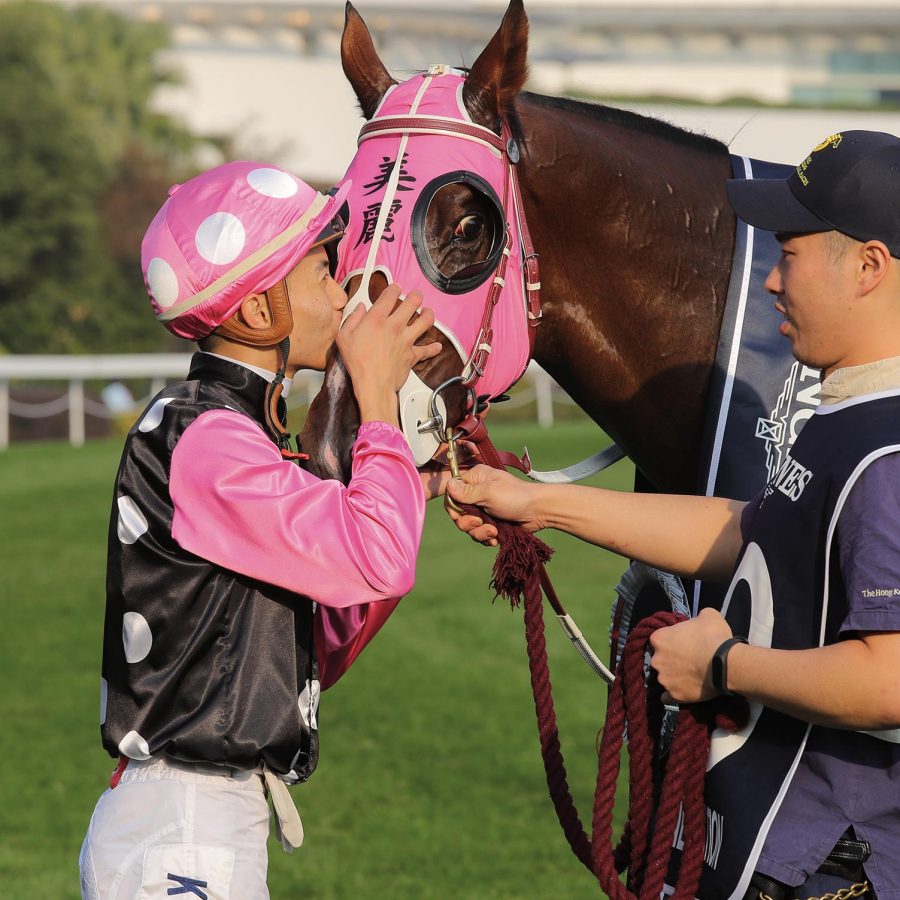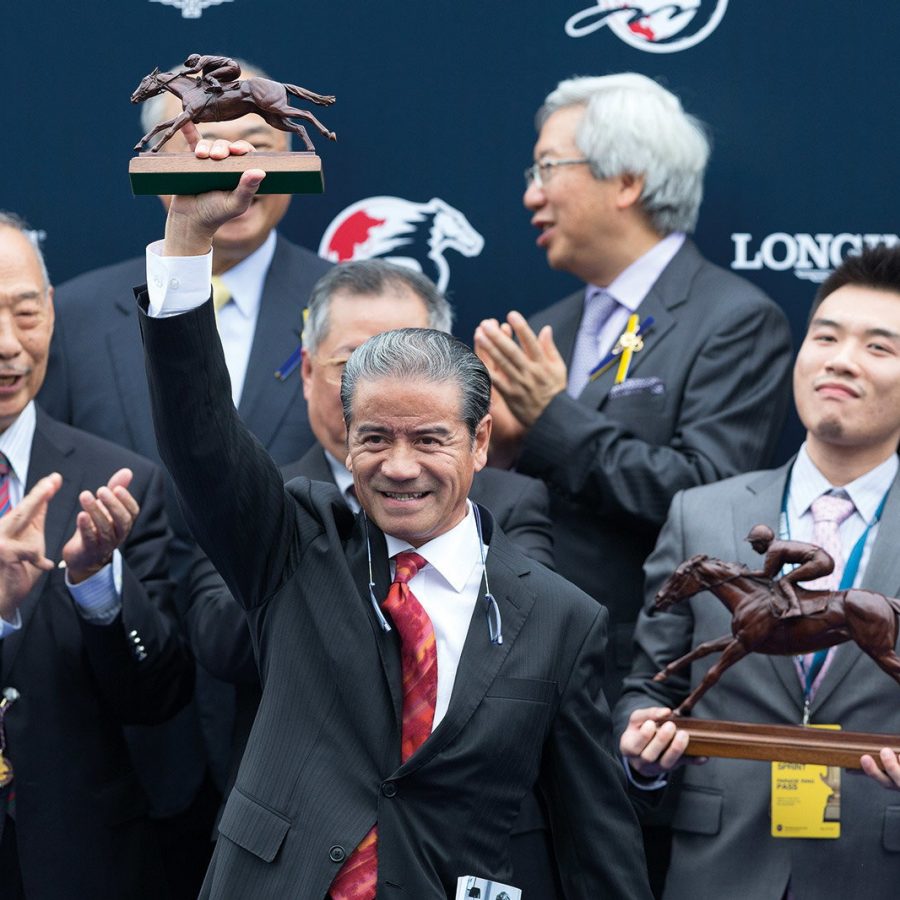A brief history of Hong Kong horse racing

Horse racing was brought to Hong Kong in the 1840s by the British, and it wasn’t long before it became central to the city. These days it’s by far the most popular spectator sport in Hong Kong: in the 2018/19 season, the city’s two racecourses in Happy Valley and Sha Tin had an attendance of 2.21 million and saw HK$124.8 billion worth of bets made.

Credit: Mark Dadswell/Getty Images
Racing is so ingrained in Hong Kong culture that in the ’80s, it became a symbol of a smooth transfer of sovereignty when China’s late paramount leader Deng Xiaoping assured concerned Hongkongers that ‘the horse racing will continue, the dancing will stay’.
It doesn’t matter if they’ve bet their shirts or they’re just spectators: racing keeps Hongkongers on the edge of their seats. You don’t need to refer to the racing calendar to know when the next race will be held – the spectators who flood to the track and the enthusiasts who gather in the Hong Kong Jockey Club’s off-course betting branches will tell you.

Credit: South China Morning Post / Contributor
The sport is a profound subject of interest in the city, and picking the winning horse is not just a matter of luck. Long before they place a bet, serious fans pore over every detail in newspaper race day supplements: the race distance, past performances of horses and jockeys alike, and the condition of the horses and the track itself. In addition to winning big money, earning bragging rights among fellow enthusiasts is the ultimate honour – what could be more rewarding for Hongkongers, who pride themselves on being smart and money-minded?
It wasn’t always a slick affair: in the ’80s a concerted effort was made to boost the quality of both horses and races. That meant that the city’s fixtures were upgraded to Group 1 status, so they could attract international talent and attention. Star horses like River Verdon and Fairy King Prawn made expeditions overseas to claim international race titles, putting the city firmly on the map. And Hong Kong gallopers like 2019 Horse of the Year, Beauty Generation, have made their mark on the world stage by fending off mighty international rivals on home turf.

Credit: Lo Chun Kit
Hong Kong’s races are carnival-like in atmosphere, as spectators from all walks of life come together to cheer for their local heroes: unimaginable in the early days, when spectators were segregated by race and class. Although horse racing was once exclusive to the British elite, the sport has since transcended socioeconomic boundaries. Sure, the size of the bets may differ; but the sense of triumph is universal.
Foreign jockeys still dominate racing in Hong Kong. But there have also been homegrown heroes who have become celebrities in their own right. People like Hong Kong born-and-raised jockey Tony Cruz. Of Portuguese descent, he joined the Jockey Club’s first apprenticeship programme at the age of 14 and went on to become the city’s champion jockey six times, with 1,500 wins under his belt – of which 946 took place in Hong Kong. Since then, he’s also made his name as a trainer, winning two championship titles to date.
More than two decades after the British left Hong Kong, Deng was half-right. We’re dancing in clubs, not discos. But the racing continues, unchanged.
More inspiration
Hong Kong travel information
- China – the Chinese Mainland, Hong Kong SAR, Macao SAR and Taiwan Region
- Hong Kong SAR - English
- Chinese Mainland (China) - English
- Taiwan, China - English
- 香港特別行政區 - 繁體中文
- 中国內地 - 简体中文
- 中國台灣 - 繁體中文
- Africa
- South Africa - English
- Asia
- Bangladesh - English
- Korea - English
- Singapore - English
- Cambodia - English
- 한국 - 한국어
- Sri Lanka - English
- India - English
- Malaysia - English
- Thailand - English
- Indonesia - English
- Maldives - English
- ประเทศไทย - ภาษาไทย
- Indonesia - Bahasa Indonesia
- Myanmar - English
- Vietnam - English
- Japan - English
- Nepal - English
- Việt Nam - tiếng Việt
- 日本 - 日本語
- Philippines - English
- Australasia
- Australia - English
- New Zealand - English